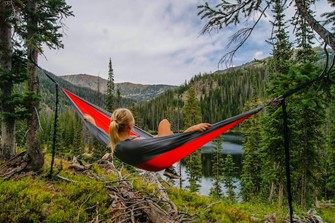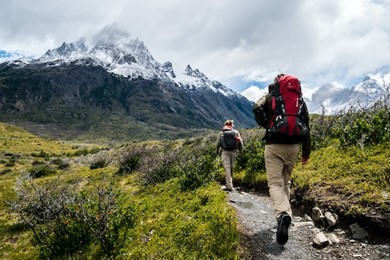Venturing into the great outdoors offers a profound connection with nature, but it comes with a responsibility to protect and preserve these precious environments. Enter the Leave No Trace principles, a set of ethical guidelines designed to promote responsible outdoor recreation. In this article, Angelo Dellomo delves into these principles and provide practical tips for minimizing your environmental impact while enjoying the beauty of the natural world.
A Foundation for Responsible Outdoor Ethics
• Plan Ahead and Prepare
Before embarking on your outdoor adventure, take the time to thoroughly plan your trip. Research the area’s regulations, weather conditions, and potential hazards. This preparation not only ensures your safety but also helps you make informed decisions to minimize your impact on the environment.
• Travel and Camp on Durable Surfaces
Stick to established trails and campsites to avoid trampling on delicate vegetation or disturbing wildlife habitats. Avoid creating new paths or campsites, as this can lead to erosion and habitat destruction.
• Dispose of Waste Properly
Carry out everything you bring in, including trash, food scraps, and human waste. Use designated waste disposal facilities or practice Leave No Trace techniques for waste disposal, such as using a portable toilet or digging a cat hole.
• Leave What You Find
Preserve the natural beauty and cultural heritage of the outdoors by refraining from picking plants, disturbing wildlife, or removing rocks, fossils, or historical artifacts. Leave them for others to enjoy and for future generations to appreciate.
• Minimize Campfire Impact
While campfires can be an enjoyable part of outdoor experiences, they also have the potential to cause significant environmental harm. Use a camp stove for cooking instead, as they leave no trace and are more efficient.
• Respect Wildlife
Observe animals from a safe distance and avoid feeding them. Feeding wildlife disrupts their natural behaviors and can lead to dependency on human food, which is harmful to their health.
• Be Considerate of Other Visitors
Keep noise levels down, yield the trail to others, and maintain a friendly and respectful attitude towards fellow outdoor enthusiasts. Everyone deserves the opportunity to enjoy nature without unnecessary disruptions.
Practical Tips for Responsible Outdoor Recreation

• Pack Light and Efficient
Choose lightweight, reusable gear to minimize your overall environmental impact. Opt for products made from sustainable materials and consider multipurpose items that reduce the need for excess equipment.
• Use Biodegradable Soaps and Cleaners
When cleaning cookware or yourself in natural water sources, opt for biodegradable soaps to minimize the impact on aquatic ecosystems.
• Practice Leave No Trace Fishing
If you’re angling, be sure to follow responsible fishing practices. Use barbless hooks, release fish gently, and be mindful of catch limits to conserve fish populations.
• Stay Informed About Local Regulations
Different areas may have specific rules and guidelines to protect their unique ecosystems. Stay informed about local regulations and respect them to ensure you’re doing your part in minimizing your environmental impact.
• Lead by Example
Educate fellow outdoor enthusiasts about Leave No Trace principles and set a positive example by following them yourself. Encourage responsible outdoor ethics in your community and share your knowledge with others.
Conclusion
Embracing Leave No Trace principles is not just a responsibility, but a privilege that allows us to enjoy the great outdoors while preserving its beauty for future generations. By adhering to these ethical guidelines and implementing practical tips, we can collectively minimize our environmental impact and contribute to the conservation of our cherished natural spaces. Remember, Leave No Trace is not just a practice; it’s a way of life that ensures the longevity and vitality of our outdoor playgrounds.
